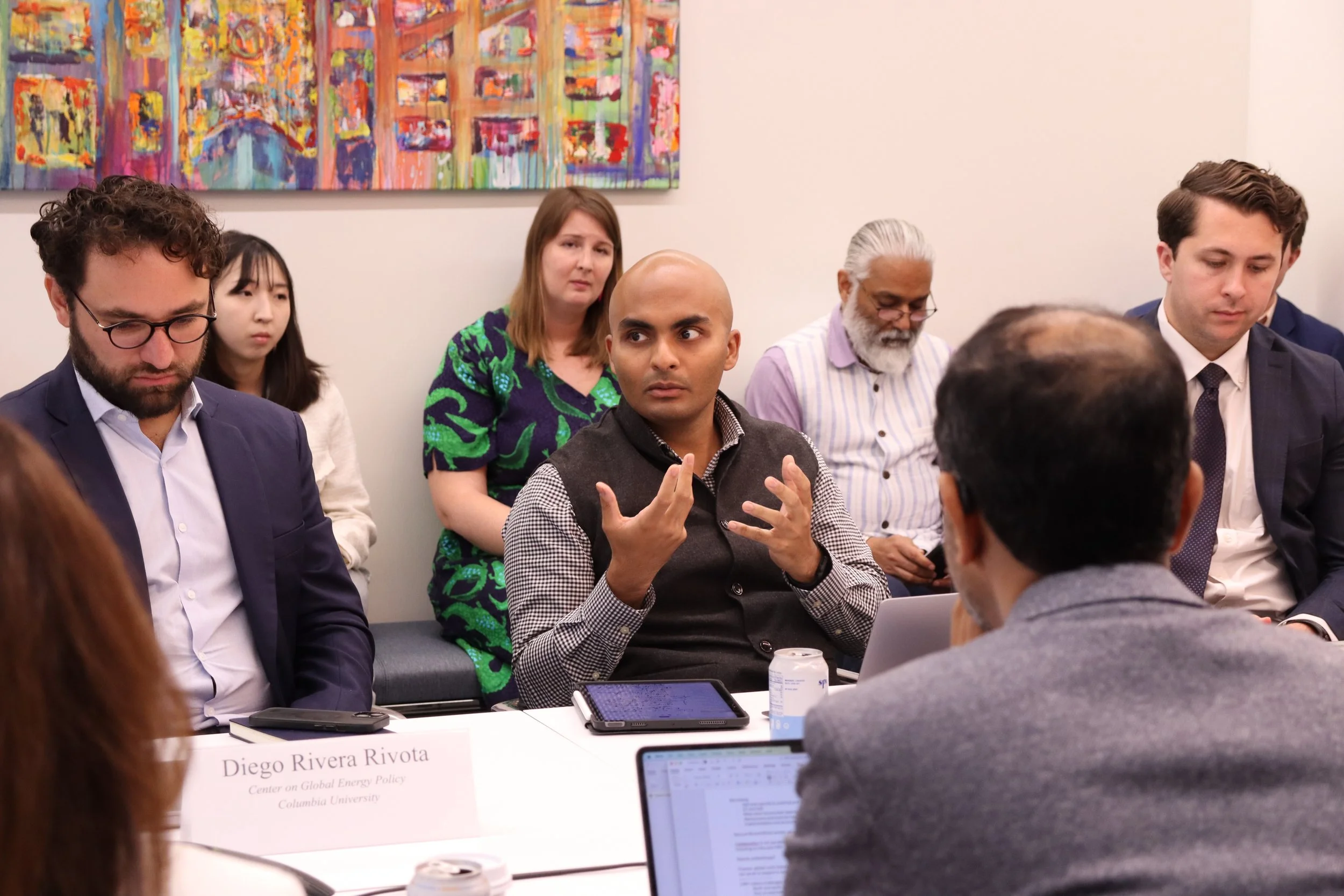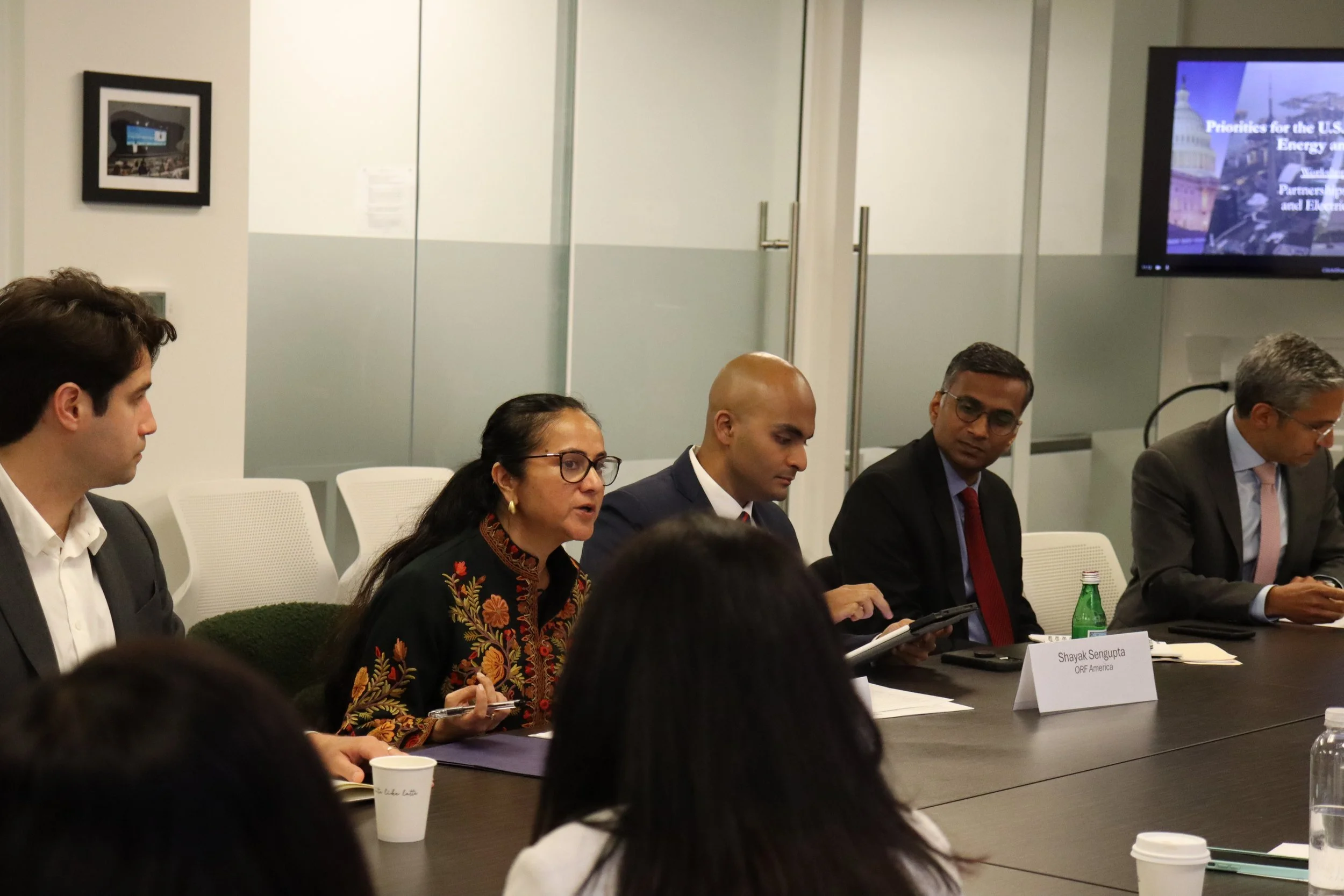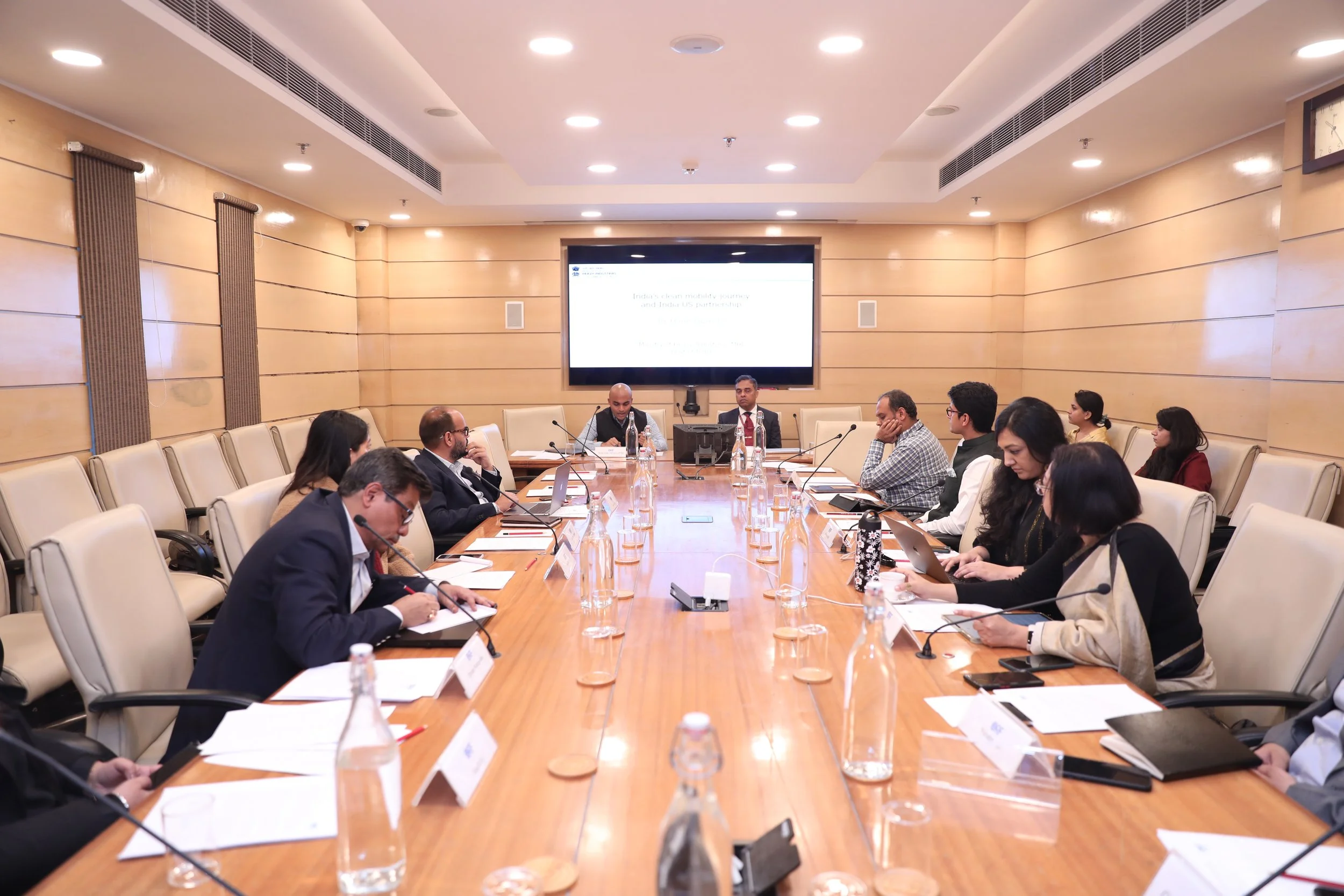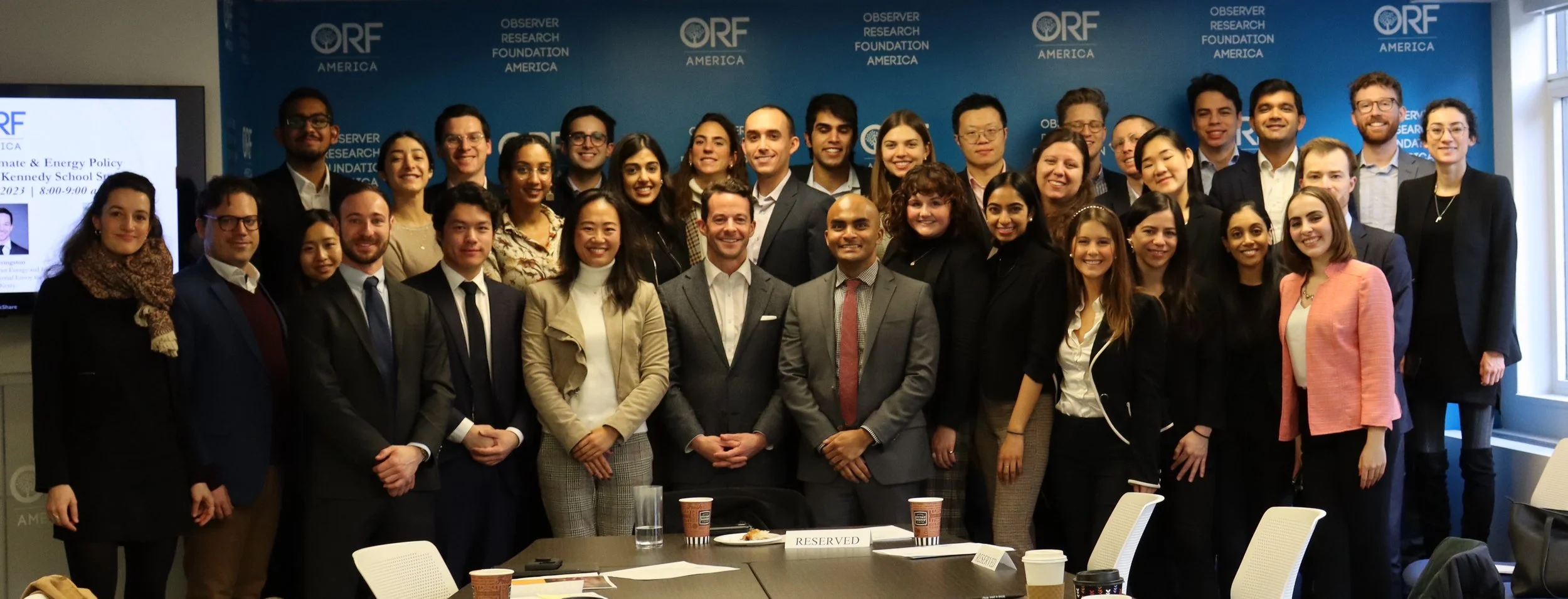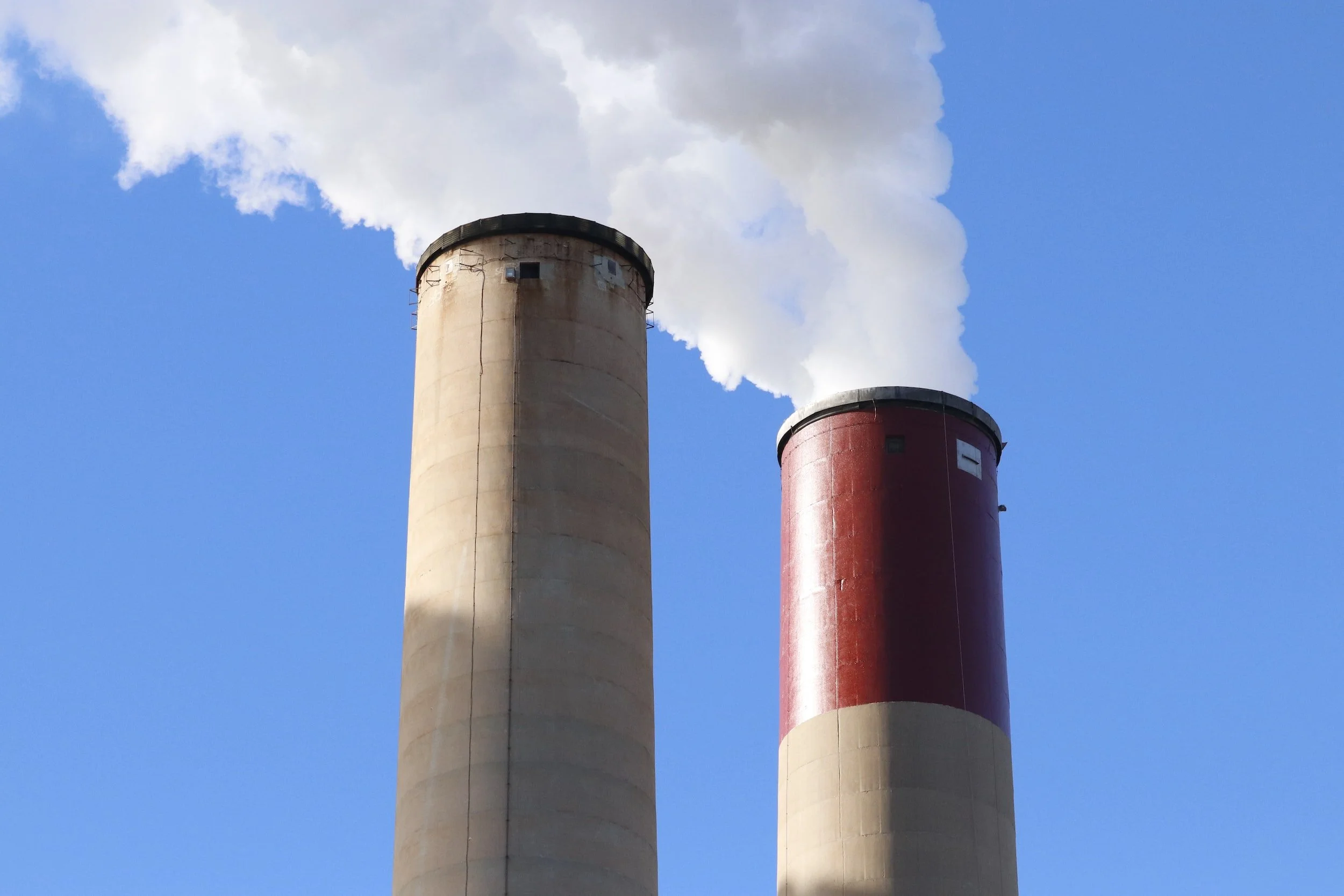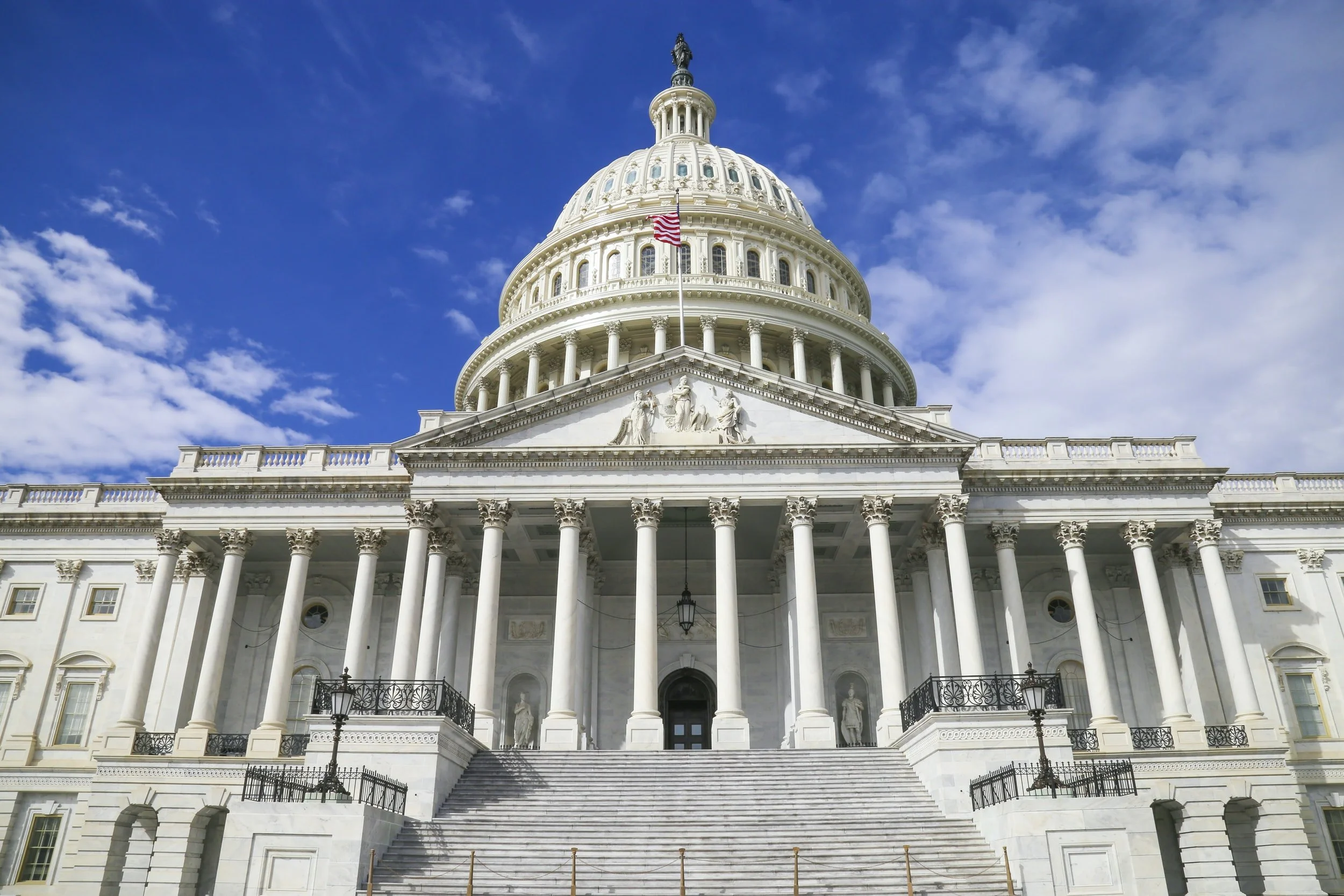Shayak Sengupta
Former Non-resident fellow

Shayak Sengupta
HIGHLIGHTS
2019-2021: Visiting Researcher, Centre for Social and Economic Progress
Dr. Shayak Sengupta was a Non-Resident Fellow at ORF America. He previously served as a Fellow for ORF America’s Climate & Energy Program and was responsible for the U.S.-India Energy monitor, which tracks energy and climate developments between two of the world’s largest economies and energy consumers.
Previously, Dr. Sengupta served as a Visiting Researcher at the Centre for Social and Economic Progress (formerly Brookings India) in New Delhi. There, as part of his doctoral research, he worked with collaborators in the United States and India to develop a simplified model of the Indian power sector. This model better quantifies the climate and air pollution impacts of power generation in India under various policies. His interests in India’s energy and climate future began when he served as a Fulbright-Nehru scholar at the Indian Institute of Technology, Kanpur where he studied air pollution control policies at India’s power stations.
Dr. Sengupta’s expertise is interdisciplinary spanning technology and policy related to energy, climate change, and air quality. He received a Ph.D. and M.S. in engineering and public policy from Carnegie Mellon University, where he was also affiliated with the Center for Atmospheric Particle Studies, an interdisciplinary research center devoted to the science and public policy of global air pollution. He earned his B.S. magna cum laude in civil and environmental engineering from Rice University. In addition to his Fulbright-Nehru award, he is the recipient of a Boren Fellowship and a National Science Foundation Graduate Research Fellowship for his graduate studies. Dr. Sengupta grew up in Houston, Texas, with many trips to Kolkata, India, where much of his family resides.
PUBLICATIONS
This special report explores the opportunities of a U.S.-India Strategic Energy and Industrial Partnership.
Special Report
By Aditya Ramji
"Rebalancing Globalization: Perspectives from the Global South" attempts to provide a framework for the next phase of globalization that is rebalanced and sustainable and can address issues that matter to the Global South.
Edited Volume
By Anit Mukherjee, Dhruva Jaishankar, Alan Gelb, Pamla Gopaul, Marta Bengoa, Shayak Sengupta, Aude Darnal, Elizabeth Sidiropoulos, Udaibir Das, Veronica Jijon, and Lorrayne Porciuncula
Editors: Anit Mukherjee and Dhruva Jaishankar
Background Paper No. 24
By Peter Jarka-Sellers
Ongoing armed conflicts in Europe and the Middle East and a fractured trade relationship between the world’s two largest economies, the United States and China, mean the energy transition cannot take economic integration and its accompanying benefits for granted.
Special Report
By Raj Sawhney, Shayak Sengupta, and Gregory Wischer
Editor: Shayak Sengupta
By Kirat Singh, Tapas Peshin, Shayak Sengupta, Sumil K Thakrar, Christopher W Tessum, Jason D Hill, Inês M L Azevedo and Stephen P Luby
Absolute annual mortality ranges from less than 1 to over 650 deaths/year across units, and the mortality intensity of generation varies from under 0.002 to 0.43 deaths/GWh.
By Tapas Peshin, Shayak Sengupta, Sumil K Thakrar, Kirat Singh, Jason Hill, Joshua S Apte, Christopher W Tessum, Julian D Marshall and Inês M L Azevedo
Higher increases in pollution exposure are seen in scheduled castes/tribes, poor, and rural populations particularly in high coal production states.
Background Paper No. 22
By Gregory Wischer
Background Paper No. 21
By Gregory Wischer
By Shayak Sengupta and Abhinav Jindal
A close look at India's relationship to Just Energy Transition Partnerships.
By Shayak Sengupta
Without concerted policy efforts to incorporate the eastern states into India’s renewable fold, the region risks being left behind in reaping the benefits of transition.
By Shayak Sengupta, Medha Prasanna and Peter Jarka-Sellers
The Agenda 2030 Partnership builds on nearly two decades of cooperation between the US and India on energy and climate issues.
By Shayak Sengupta and Sagatom Saha
The Inflation Reduction Act is Washington’s boldest climate policy ever—but still woefully insufficient.
Background Paper No. 15
By Shayak Sengupta
Background Paper No. 14
By Peter Jarka-Sellers and Shayak Sengupta
By Shayak Sengupta, Neha Khanna, Casper Sonesson, Daniel Suryadarma, Aanandita Sikka, Edoardo Tancioni, Sagatom Saha, Budy Resosudarmo
Economywide decarbonization is essential for achieving the climate goals set in the Paris Agreement.
By Shayak Sengupta, and Sagatom Saha
The era of green subsidies is shaping the transition to a cleaner future, but, absent global cooperation, developing countries risk being left behind.
By Shayak Sengupta
So far, the Biden administration has relied on a series of ad hoc agreements to deal with international reactions from the IRA, but it needs a proactive approach.
The focus of this issue of the U.S.-India Energy Monitor is hydrogen in the United States and India.
Special Report
By Shayak Sengupta, Medha Prasanna, and Peter Jarka-Sellers
By Shayak Sengupta, Sumil K Thakrar, Kirat Singh, Rahul Tongia, Jason D. Hill, Ines M. L. Azevedo, and Peter J. Adams
Air pollution and greenhouse gases from India's coal-dominant electricity system causes widespread, premature deaths in the country.
The focus of this issue of the U.S.-India Energy Monitor is natural gas in the United States and India.
Special Report
By Shayak Sengupta
By Shayak Sengupta, Peter Adams, Thomas Deetjen, Puneet Kamboj, Swati D'Souza, Rahul Tongia, and Inês Azevedo
Electricity consumption and emissions of states in India are similar to differences between those of entire countries.
The focus of this issue of the U.S.-India Energy Monitor is the wind sector in the United States and India.
Special Report
By Shayak Sengupta & Jahanvi Singh
A focus of this issue is the coal sector in the United States in India.
Special Report
By Shayak Sengupta & Jahanvi Singh
By Shayak Sengupta, Thomas Spencer, Neshwin Rodrigues, Raghav Pachouri, Shubham Thakare, Peter Adams, Rahul Tongia, Inês Azevedo
As electricity demand and living standards in India increase, the country will plug in new technology like electric vehicles and air conditioners.
By Tapas Peshin, Shayak Sengupta, and Inês Azevedo
Compared to their conventional counterparts, electric vehicles may reduce greenhouse gas emissions in many states in India, but also increase air pollution from electricity generation because most Indian coal plants do not control their air pollution emissions.
By Shayak Sengupta & Rama T. Ponangi
India’s nuclear isolation came to an end with the help of civilian nuclear deals with the United States and its allies. Yet Russia has more influence on the Indian nuclear power market.
A particular focus of this issue is solar energy in the United States and India. Solar will be key to reducing emissions and decarbonizing the energy systems of both countries.
Special Report
By Shayak Sengupta & Ammar Nainar
Recent Events
media appearances
Shayak Sengupta as a panelist at Aspen Ideas: Climate hosted by Aspen Institute.
Shayak Sengupta, as a panelist at Atlantic Council.
Shayak Sengupta, interviewed by Lights On News.
Shayak Sengupta Quoted by the Science News.
Shayak Sengupta, as a panelist at Breakthrough Institute.
ORF America’s Roundtable covered by the Economic Times.
Shayak Sengupta Quoted by the Associate Press & Nature.































